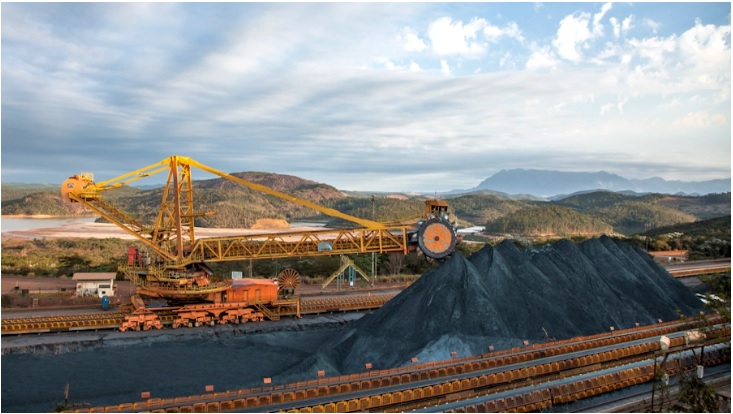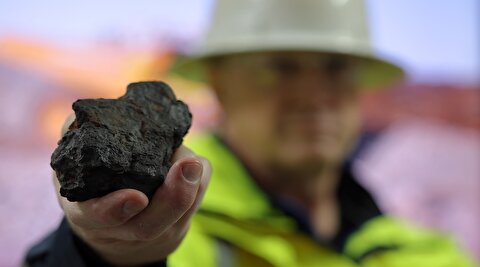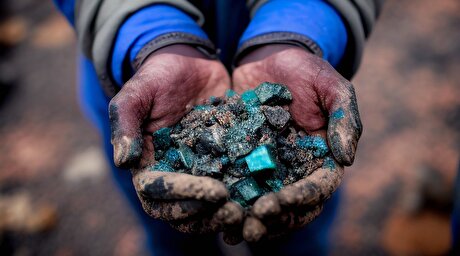
Vale cuts capex as coronavirus hinders operations

In a securities filing in which it divulged worse-than-expected first quarter results, Vale warned that ongoing postponements to maintenance programs could have a significant effect on some operations.
Vale plans to cut its capital expenditure this year to $4.6 billion from $5 billion, as the coronavirus has made some construction and maintenance work unsafe. It added that more downward capital spending revisions were possible, but that such revisions should not be considered savings, as the expenditures may be carried over to 2021.
“Looking forward, Vale has postponed scheduled maintenance stoppages at many of its plants, which will hinder achievement of optimal production levels especially at base metals operations,” the company said.
“Vale may also suffer production impacts from increased absenteeism associated with quarantining measures, and resumption of idled mines in iron ore will be postponed due to delays in inspections, assessments and authorizations.”
It was not the first time Vale flagged potential production and maintenance issues from the coronavirus outbreak. Earlier in April, the company revised down its 2020 production forecast across several divisions.
In the filing on Tuesday, Vale reported net income of $239 million and earnings before interest, taxes, depreciation and amortization, or EBITDA, of $2.88 billion. Analysts polled by Refinitiv had predicted Vale would post EBITDA of $3.18 billion. Net income also came in below most analysts’ estimates.
The company said its results were hit by a rapid devaluation of Brazil’s real currency against the dollar, in which Vale’s hedge positions and much of its debt are denominated, as well as a $357 million loss associated with its bunker fuel hedging program.
The company expects freight rates should fall by at least $3 per tonne in the second quarter. Vale expects to realize shipping cost gains because of lower fuel prices in the next quarter since many ships were in transit and refueled only after prices fell in February.
On Wednesday Vale also announced that has received non-binding offers for its operations on the Pacific island of New Caledonia.


Barrick’s Reko Diq in line for $410M ADB backing

Trump weighs using $2 billion in CHIPS Act funding for critical minerals

Pan American locks in $2.1B takeover of MAG Silver

US adds copper, potash, silicon in critical minerals list shake-up

Trump raises stakes over Resolution Copper project with BHP, Rio Tinto CEOs at White House

Gold price gains 1% as Powell gives dovish signal

Gold boom drives rising costs for Aussie producers

Giustra-backed mining firm teams up with informal miners in Colombia

US seeks to stockpile cobalt for first time in decades

Kyrgyzstan kicks off underground gold mining at Kumtor

Kyrgyzstan kicks off underground gold mining at Kumtor

KoBold Metals granted lithium exploration rights in Congo

Freeport Indonesia to wrap up Gresik plant repairs by early September

Energy Fuels soars on Vulcan Elements partnership

Northern Dynasty sticks to proposal in battle to lift Pebble mine veto

Giustra-backed mining firm teams up with informal miners in Colombia

Critical Metals signs agreement to supply rare earth to US government-funded facility

China extends rare earth controls to imported material

Galan Lithium proceeds with $13M financing for Argentina project

Kyrgyzstan kicks off underground gold mining at Kumtor

Freeport Indonesia to wrap up Gresik plant repairs by early September

Energy Fuels soars on Vulcan Elements partnership

Northern Dynasty sticks to proposal in battle to lift Pebble mine veto

Giustra-backed mining firm teams up with informal miners in Colombia

Critical Metals signs agreement to supply rare earth to US government-funded facility

China extends rare earth controls to imported material

Galan Lithium proceeds with $13M financing for Argentina project

Silver price touches $39 as market weighs rate cut outlook

















